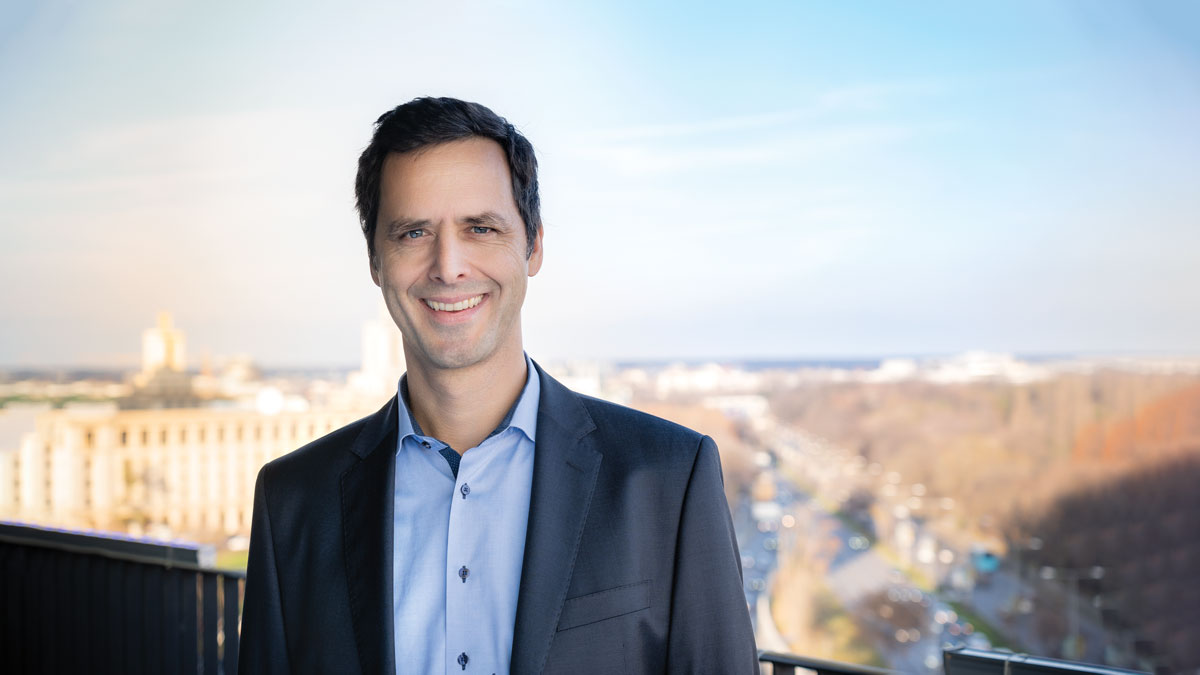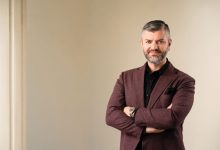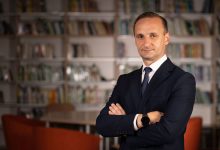Volker Raffel, CEO of E.ON Romania: Focusing on Energy Efficient Solutions for Customers
In this interview, Volker Raffel, CEO of E.ON Romania, describes the main steps of a successful journey positioning the company on the path of digitalization and green transition.
2022 marked an important year for E.ON in Romania as the company has passed the EUR 2 billion mark in total investments made in our country since E.ON entered this market. Another key moment was in 2017, when E.ON Romania entered the market of solutions for household customers, transforming the company from a traditional electricity and gas supplier into a provider of innovative, competitive, and reliable energy solutions and products.
Volker Raffel was born in 1973 in Göttingen, Germany. He earned his degrees in physics after studying at Clausthal University of Technology and Karlsruhe Institute of Technology and in engineering after studies in Grenoble and Paris.
His professional career began in 1999, joining the energy company PreussenElektra, which later formed E. ON group through a merger.
He was involved in E.ON’s entry into the Romanian energy market starting with 2004 and occupied executive positions within E.ON Moldova until 2008. After holding various executive positions within the E.ON group, he was appointed deputy general director of E.ON Romania starting with May 2021, in order to assume the position of director general in this company from August 1st, 2021.
Mr. Raffel, since entering the market in 2005, E.ON has invested more than EUR 2 billion in Romania. What are the main objectives of these investments, risks and returns expected? What are the most significant company achievements to date?
Volker Raffel: Indeed, this year E.ON has exceeded the threshold of EUR 2 billion invested in Romania since entering the market in 2005. This is a symbolic milestone that demonstrates our long-term orientation in all our activities in Romania. And I would mention another figure that tends to go unnoticed, namely the approximately EUR 2.8 billion in taxes paid to the state budget over the years. Moreover, we support mainly the local economy and thousands of jobs through collaborations with 900 direct suppliers and around 2,300 product and service providers throughout the supply chain.
One of our objectives has been to ensure that our 3.4 million customers benefit from supply and distribution services at European standards. We have invested around EUR 1.5 billion on the distribution side, the majority of which (60-70%) strictly in the modernization of the network components. The other main areas where we have invested are grid extensions as well as digitization, which has led to shorter response times in the event of interruptions.
Our efforts have shown their effects, so we are the company with the lowest outage time in Romania, with only 89 minutes last year, well below the country average of 130 minutes. The duration of interruptions is down by 26% compared to the previous year, when the indicator was 120 minutes in our case, and is 20 times less than the 1,800 minutes/year recorded before privatization, in 2005. This brings us to less than 100 minutes of unscheduled interruptions, which is within European parameters.
Regarding gas distribution, we have modernized 8,850 km of the network, that is more than 50% of the network taken over at privatization, and if we were to make a comparison this is more than the distance between Bucharest and New York. A part of it needed to be replaced simply due to age, but another part because in the 90ies some parts of the grids were built in bad quality. At the same time, to connect new consumers, we have extended the network by about 3,000 km, as it would be the case for a distance from Bucharest to London.
This year we plan to invest RON 690 million (EUR 140 mil.) in the distribution area, more than 3.6% compared to the previous year. For next year we want to be able to maintain a high level of investment, at least at the same level as this year.
The E.ON group is one of Europe’s largest operators of energy networks and energy infrastructure and a provider of innovative customer solutions for approximately 50 million customers. How is the group’s strategy practically implemented in Romania? What role does sustainability play in your company’s strategy and what are the pillars of E.ON sustainability strategy?
Volker Raffel: E.ON aims to play a key role in the transition to green energy, with a focus on energy efficiency. In November 2021 we updated our strategy and set three priorities to focus on in the coming years: sustainability, digitization, and growth.
Sustainability is more than an opportunity for us, it is our business: we contributed to the reduction of the carbon footprint of Romanian energy grid infrastructure with 30%, from 1.27 million tons in 2019 to 888 thousand tons in 2021. But we also offer our customers more efficient energy solutions. On the one hand these are classical products such as modern gas boilers using 30% less gas for even better comfort compared to old installations. But also, the distribution grids we operate are the backbone for a modern economy where you replace inefficient wood fire with natural gas, or for electricity to connect smart home solutions to the grid, or heat pumps, or PV panels or cars. And these solutions interact among them, for instance you can program to use energy rather directly when your PV produces it.
Sustainability means, first, saving resources, and in the context of the energy crisis this principle encourages efficient consumption of resources and energy. The measures we must take are energy efficiency, investments mostly in green energy and energy transition. We are aware that substantial measures and investments are needed to achieve energy independence, and Romania has an excellent starting point here, but also to the much more intensive use of renewable sources.
We have not overcome dictatorship to come back to recommend our customers what temperatures they shall have at their homes or when to turn off the lights. I am not singing this song. But of course, energy is nothing to be wasted. Therefore, we offer more efficient solutions for the same or even increased comfort, but for those customers wanting to reduce their bill as well as their ecological burden we also give hints how to do it. Would you know how much energy is wasted in the stand-by mode of electric devices?
Anticipating this major change in the energy system, in addition to the energy solutions proposed to customers, a few years ago we started an extensive process of modernization of the electricity distribution, to be able to take energy from less exploited renewable sources and from prosumers.
Our strategy is therefore more confirmed than ever.
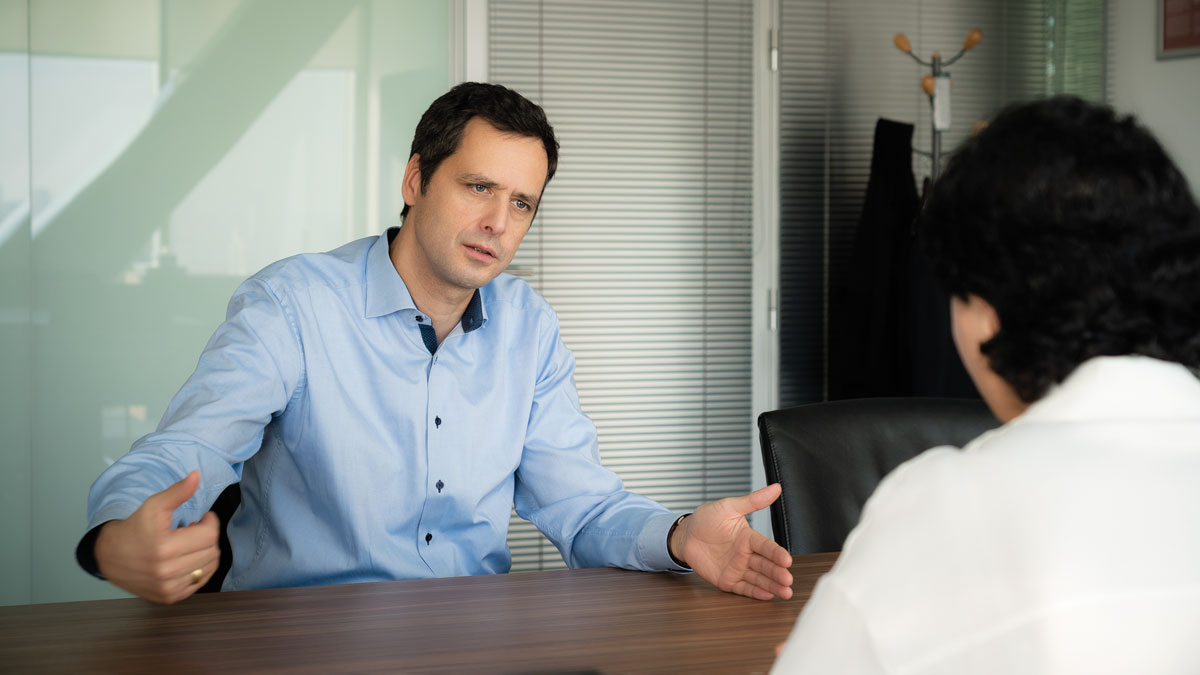
What are the key steps of E.ON successful journey in Romania positioning the company on the path of digitization and green transition?
Volker Raffel: Regarding digitization: Energy grids need to evolve towards smart grids that can take up more and more renewable energy and thus support the energy transition. A smart grid is the combination of an information network and an electricity distribution grid. Thus, investments in communications equipment, hardware and software components, cyber security etc. are currently mandatory and are literally investments in grids and ultimately in better services for our customers, which is the goal of our investments.
When it comes to green transition, I already told you that we see sustainability as our job and how we contribute to it. Or help our customers to contribute to it. The green transition cannot be done by one player, but by many. Romania needs renewal of power plants that can operate independent from the weather – not as urgent as Germany, but still – which will take some time and therefore must begin today. But the fastest way to „invest ourselves out of the crisis” is in this moment to add renewable power production to the grids, and to use energy more efficiently. Both can be done quick. With the right political support, we can see major contributions of both already next winter. Energy efficiency is a particularly powerful tool for governments, businesses, and consumers to reduce their exposure to energy market volatility and enhance resilience.
For example, Italy has one of the smartest measuring systems. The state gives the consumers a “Super Bonus”, i.e., 110% of the costs of investment in energy efficiency projects via a tax reduction scheme. This is funded with European money, which leads to an increased absorption of EU funds by Italy – an issue where Romania could and must also improve. The administrative task to check whether the energy savings are real is carried out by privately owned companies, which is feasible for the state and which has also stimulated the interest of many players in the area to operate in a transparent manner, thus leading to an increased equity level in the tax system. This scheme is helpful for customers in two ways: their energy consumption is lower, and they get back 110% of their investment costs. The state wins through higher equity of the tax system and saves money at the same time and does not need to subsidize where there is no further need to do it, thus being able to redirect these amounts and use them for reducing energy costs for other consumers.
I believe that, in Romania as well, the state needs to provide incentives and tax advantages to consumers for the purchase of energy efficient equipment.
On the non-residential segment, we have been witnessing ever more companies in Romania, as well as across Europe, choosing sustainable business models and seeking to cut their energy costs; and we are here to provide them energy solutions tailored to their specific needs.
For instance, E.ON has developed beginning with 2019 an energy solutions portfolio to in the long term support the businesses of our partners. Those more than 150 PV projects we have currently completed generate around 36 GWh of annually renewable energy and contribute to CO2 emissions reduction by almost 8,000 tons/year.
Also, we have put up highly performing public lighting systems, and the savings thus made went up to 60% of the energy consumption for public lighting compared to the older systems.
Rethinking the security of the European Union’s gas and electricity supply comes on top of EU’s agenda. What would be Romania’s potential in consolidating EU’s energy security?
Volker Raffel: We are now part of a new reality, where the resilience of the energy sector becomes critical for the security of Europe, of Romania. We see how the energy crisis escalated, as a consequence of the war in the Ukraine. The imperatives of the moment are the ensuring of the necessary energy and gas volumes, the counteracting of price increases and the ensuring of the financial viability of the operators.
Romania is in a very good situation, providing about 90% of its consumption needs from domestic production, so electricity and gas prices from domestic production should reach customers at reasonable levels, not at crisis import prices. If we manage to do that – and the latest ordinances of the government, go exactly in this direction – we will have an advantage so that the economy can function normally and probably even better than in other countries in Europe.
The security of the natural gas supply depends on the diversification of the supply sources, implicitly through the development of the interconnections with the neighbouring states. Important new sources of supply are already emerging, natural gas from the Black Sea and the Caspian Sea region, as well as new LNG import capacity developed in the region. And again, energy efficiency helps here as well. Modernizing district heating grids in Romania also will reduce the gas demand. Some heating grids in Romania still have losses of above 30%, while in Germany the national average is at slightly above 13%. At today’s gas prices, the cost of wasted energy is far higher than the investment would cost.
From our perspective, an important lever for covering the peak consumption in Romania, considering the specific climate of the country, is to increase the extraction capacity from gas storages. The problem in cold days is not that Romania would not have enough gas, but to get it with sufficient speed out of the ground, on cold days the difference being covered in the last winters with imports.
Acceleration of investments in clean and efficient technologies is the focal point of the solution – for instance, fast implementation of new wind and solar power projects and replacement of boilers with efficient ones or with heat pumps. Even a very fast-paced implementation will still require time to reach a major reduction of the demand of imported gas.
At the same time, authorities need to urgently provide a package that should encourage the energy efficiency/consumption reduction measures.
On a long-term basis, the solution is the stimulation of investments all along the chain (from producer, transporter, distributor, prosumer), legal and fiscal predictability and continuous dialogue.
In July 2020, the European Commission proposed a hydrogen strategy for a climate-neutral Europe, aiming to accelerate the development of clean hydrogen and ensuring its role as a cornerstone of a climate-neutral energy system by 2050. How do you assess hydrogen compatibility in the natural gas infrastructure?
Volker Raffel: The natural gas grids Delgaz Grid manages are therefore essential to the current and future energy security architecture of Romania as they can ensure circulation of hydrogen. It is imperative that over the next period authorities concentrate their efforts into establishing hydrogen technical norms as well as setting a proper investment regulatory framework, since hydrogen-ready grids require special infrastructure components and higher operational costs.
Our company intends to engage internationally in electrolysis hydrogen production projects, in preparing the grid infrastructure and renewables to produce and distribute green hydrogen as well as in investing along the entire hydrogen value chain.
Delgaz Grid, the distribution company within the E.ON Romania group, launched in November a pilot project with the aim to analyse the compatibility and behaviour of the elements of the existing distribution networks, selected in the pilot project, respectively of the related installations/appliances, to the NG-20% vol. H₂ mixture, and to evaluate the possibility of their conversion to the NG-H₂ mixture.
In the first phase, tests will be carried out in the own training centre in Medias. The tightness of various network components, combustion, and other parameters of different types of natural gas appliances, i.e., thermal power plants, convectors, stoves etc. from different manufacturers will be tested. The behaviour of the network sections in the polygon when mixed with NG- H₂ will also be analysed.
The second phase has two stages and will be carried out on selected sections of the steel and polyethylene network to which customers are connected. In a first stage, tests will be carried out on the existing installations and appliances of the customers connected to these networks, concerning tightness, combustion etc. In this stage no hydrogen will be injected into the selected distribution networks. In the second one tests with a mixture (NG – 20% vol. H₂) will be performed to analyse the behaviour of both the selected network elements and the customer’s installations and appliances.
All in all, I see huge potential for hydrogen in Romania. Especially for industrial processes and transport. And we will see more green gases also for heating and later also use hydrogen for it.
On the other hand, I also see that hydrogen will be a scarce resource in the decade or even decades to come. It will make sense to replace gas imports first before you replace domestic production as Romania has available. Therefore, I am convinced to see natural gas still for many years to come.
But again, Romania has best chances to become a hydrogen hub as for energy intensive industry anyway. Hydrogen also is the only large-scale technology to store electricity from a week with a lot of wind and sun for another week without wind and with less sun. This will be a main driver for the use of hydrogen.
In July 2022, the UN General Assembly adopted a historic resolution, declaring access to a clean, healthy, and sustainable environment, a universal human right. Thus, using alternative sources of energy (firewood, coal, non-renewable sources) is considered an option of last resort. How close are we to achieve a clean environment in Europe? How can the energy sector contribute to this endeavour?
Volker Raffel: In many ways the journey away from fossil fuels has already begun, with electric cars, charging stations and solar panels becoming a more and more familiar sight on our roads, streets and in our daily lives.
At E.ON, we manage the largest energy grid in Europe and act on behalf of about 51 million customers. This places us in a position of responsibility and provides us with the power to enable real improvements. Firstly, in the face of climate change, we have a responsibility to clearly prioritize sustainable solutions and increase their availability. Secondly, we are big enough to be a credible and influential sustainability leader of the new energy world. We believe we have a role to play in defining a clear transformation pathway toward a net-zero energy system.
That’s why we are consistently committed to the sustainable development of the energy world. We do this by making energy cleaner and smarter and giving all our customers access to a sustainable supply of electricity and heat.
Our energy networks are where the transition to a low-carbon energy supply is happening: they integrate renewables, connect producers and consumers, and deftly manage complex energy flows. Our solutions help customers of all kinds use energy more efficiently, produce their own renewable energy, and thus reduce their carbon footprint. In 2021, E.ON installed more than 100,000 solar, heating and energy-efficient solutions at European level. Our home and eMobility solutions enable our customers to offset carbon emissions by over 475,000,000 tons annually.
Without doubt, providing million customers with a clear route to sustainable living will be the biggest driver of change, but also the key to our mission is our commitment to becoming a greener company ourselves. In 2020 we set new climate protection targets: E.ON aims to be climate-neutral by 2040 and for its supply chain to be so by 2050.
E.ON is committed to the United Nations Sustainable Development Goals (SDGs) as well. Our emission-reduction targets are consistent with limiting global warming to 1.5°C above pre-industrial levels. We voluntarily chose to have our targets independently validated by the Science Based Target initiative (SBTi). We’ve also aligned our financial reporting with sustainability aspects and follow the recommendations of the Task Force on Climate-related Financial Disclosures (TCFD). Investors appreciate our sustainability strategy. CDP again gave E.ON an A rating for tackling climate change in 2021 in recognition of our leadership in corporate sustainability.
Of the more than 12,000 companies rated, we rank among the top 2%.
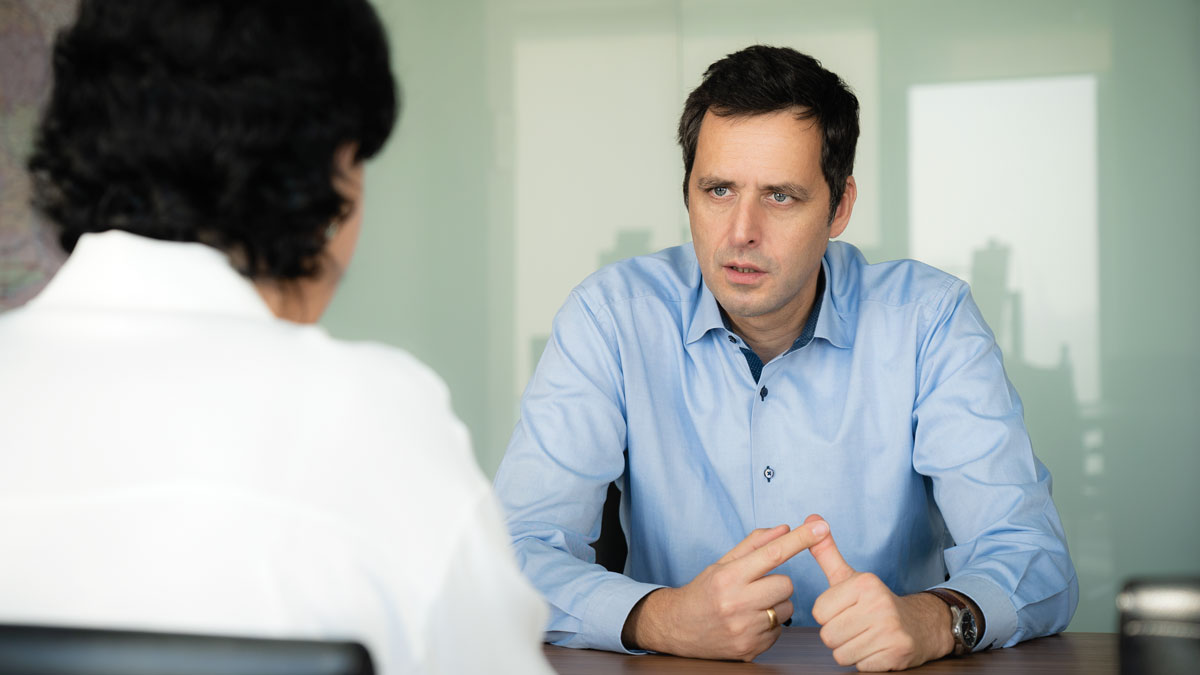
We started this interview pointing out the most important accomplishments since E.ON entering in Romania. What important company milestones do you anticipate reaching in 2023 and beyond? What would be the new investment opportunities to consider for the future?
Volker Raffel: 2023 will be a decisive year for energy suppliers and distributors in Romania, for strengthening their capacity to fulfil their mission, to deliver the energy necessary for the functioning of the economy and society, given that we are leaving this year at the limit, strongly vulnerable.
For us, regaining financial viability is the main objective, so that we have the necessary resources to ensure energy for our customers, pay off loans, and continue investing in the modernization and digitization of networks and services. The financial outlook looks more stable than at present, considering the new legislative changes, but not yet as good as it would be desirable.
E.ON will focus next year even more on energy efficient solutions for our customers to help them reduce their bills. We entered the customer solutions market in 2017 and have since become a provider of innovative, competitive, and reliable energy solutions and products, which have proven to be successful, positioning us firmly on the path of digitization and green transition in Romania. Practically, in only five years we managed to grow this line of business from zero, reaching sales of 60 million euros.
In the distribution business, as I said earlier, we want to be able to maintain the pace of investments. The basis of a successful energy transition is and will always be the distribution network, which extends to every household. Without distribution networks, there can be no energy transition.
The price of energy is expected to continue to remain high in the EU in the coming months, as it takes time to replace Russian gas supplies with supplies from EU sources. EU countries have adopted an emergency regulation to address high energy prices and help citizens and businesses that are most affected by the energy crisis (applied from 1 December 2022 to 31 December 2023). What are your company’s expected financial results for 2022, in this context?
Volker Raffel: It is obvious that the state needed to protect certain customer groups from these unprecedented energy prices. Therefore, we proposed already in September 2021, more than a year ago, how the state could support vulnerable customers and provide liquidity help to industries with a lower refund if they implement energy savings. Finally, the state preferred to use energy companies to administrate what the state could have administrated better – it is not our task and also not allowed for us to check customer’s incomes, for instance – by arguing the urgency to introduce something effective. In that situation we declared our willingness to participate in a balanced state intervention into the markets.
But the state intervened in a very unbalanced manner, complicating the invoices at maximum, leading to more than 15 changes to billing systems in the past one year, so more than one a month, and more to come, but asking in parallel for invoices “easier to understand”. And the state re-imburses still late, and not complete. E.ON Romania registered a loss in amount of almost EUR 100 million in first nine month of the year, caused by the government’s lack of recognition of natural gas and electricity purchase costs for all customers in the portfolio and the impact of the compensation scheme for household customers as well as due to frozen distribution tariffs.
During 2022, E.ON accumulated financial-banking debts in amount of EUR 620 million (RON 3.1 billion) to co-finance the support scheme.
It’s fair to say that lately, I’ve noticed an improvement in the payment situation. However, there is still too much of a time gap between the date the providers pre-fund the scheme and the date the state settles. In order to stabilize the energy system other EU countries, do direct aid to customers, or prepayments to supply companies to allow them to invoice less from customers. Romania is unique in asking private companies to pre-finance a state measure – and to refund extremely late. Still some amounts from previous year November are open. For very big amounts we have seen 5-6 months delay. Since September 2022, the state started to catch up some delays to around 3 months. By the way the law is made, this cannot be shortened further. But it must be shortened: now the winter is coming, with bigger volumes. Therefore, even today the risk of cash crisis is not yet managed during this winter! And in this situation the parliament proposed a slight change in re-imbursement scheme that will accelerate a little bit the refund starting March 2023. This definitely shows a lack of understanding of the situation.
Still the legislation on OUG 119/2022 reconfirms a reimbursement cap, which is on the one hand illegal because it is directly in contradiction to applicable EU legislation, and it still has negative impacts on the Romanian industry.
The value of the maximum settlement cap of 1,300 lei/MWh is proven unrealistic by the transactions on the wholesale market and represents a critical problem for the financing of energy acquisition after September 1st, 2022. Given that the real cost is not recognized for the calculation of the value average acquisition price, the suppliers will have difficulties in purchasing energy above the price of 1,300 lei/MWh. Lacking the possibility of acquisition, the contracts conclusion/renewal with end customers will be blocked.
How you can offer predictable contracts to industrial clients, if you do not know the future cost of the energy you need for them and running the risk that maybe you just are not covering the costs neither from customers, nor from the state. If now an electricity allocation is done for about 30% of the need of Romania – which is a good step in the right direction – it also is evident that this cannot solve the situation for the whole market.
At last, but not least, we have to mention the safety partnership with IGSU started by E.ON Romania 10 years ago. What is the impact of this initiative so far?
Volker Raffel: Through this success story that has been going on for 10 years we have tried to draw attention to the dangers that can be avoided if we inform ourselves correctly and act preventively. Together with our partners, IGSU and DSU, we mobilized resources, creativity, time, and energy to tell the people in Romania, repeatedly, that to protect their homes, properties, and the lives of their loved ones they must change their behaviour regarding the use of energy sources and respect a series of simple and clear rules. Long story short, be preventive.
Over 10 million Romanians were directly involved during this decade in approximately 40,000 actions carried out together, employees of IGSU and volunteers of our companies. Every year, safety messages reached approximately 5 million people through the campaigns carried out on televisions, radios, print media, and online as well as through social media. The amounts invested by E.ON and Delgaz Grid in supporting this partnership during these years are approaching EUR 9 million.
Therefore, as a result of the informative campaigns and investments of more than EUR 1.5 billion in distribution infrastructure, incidents in the Delgaz Grid area have decreased significantly.
The annual average over the last ten years indicates a decrease of almost half in the number of explosions, compared to the annual average for 2007-2012. Importantly, the number of victims decreased by almost 35% and the number of deaths by almost 40%. In terms of carbon monoxide poisoning, we see a decrease of about 58% compared to the annual average of 2007-2012. In this case too we have far fewer victims and far fewer deaths, with declines of about 65%.
We believe that prevention must become a reflex and must be learned from the school banks. That is why, we have continued our Energy and Safety Lessons project, and we have reached almost 640 schools, the number of beneficiaries being about 23,400 children.
Another very important project resulting from our collaboration is the social media platform “Safe Romania”, which managed to gather a community of over 27,000 Romanians. Here we publish daily informative and educational materials about safety as well as video content that attracts hundreds of thousands of views.
Prevention is an ongoing activity; we can never say it is over. That is why our joint outreach efforts will continue.
About E.ON Romania
The German E.ON Group is one of the leaders in the energy market, with a consolidated presence in Romania for 17 years. The group’s flagship companies are Delgaz Grid and E.ON Energy Romania, which are active in the distribution and supply of energy and energy solutions to around 3.4 million customers. Since entering the Romanian market, E.ON has invested around EUR 2 billion, mainly in grid modernization. At the same time, the value of contributions paid to the state and local budgets amounts to EUR 2.7 billion.


